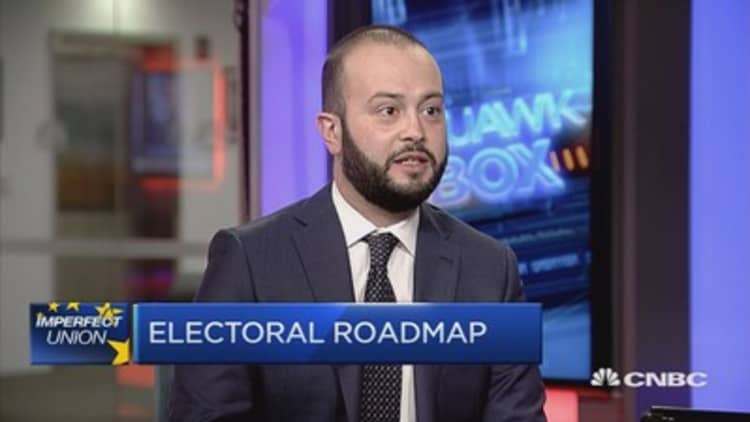The growing anti-establishment sentiment and surge of populist parties are a concern for many, especially in Europe, where a raft of key elections is happening this year.
However, the current support for populism may could soon come to an end, one analyst believes.
Populist parties "are more powerful when they aren't in power because it's easy to throw stones," David Moss, European equities fund manager at BMO Global Asset Management, told CNBC on Wednesday.
Greece, for example, is currently being governed by Syriza, a populist left-wing party headed by Prime Minister Alexis Tsipras. He came to power in 2015, when Greek voters were angry at the establishment parties for several years of economic struggles.
Tsipras, who at one time enjoyed approval ratings of above 80 percent, has seen public support plummeting over the last few months as the promised significant economic improvements and end to austerity have failed to appear.
In an attempt to boost his ratings, Prime Minister Tsipras announced Christmas benefits to Greek pensioners. But such step made European creditors angry, leading to the delay of some debt relief measures.

"Greece again will have a difficult year ahead because we will have further negotiations with other euro zone countries," Vincenzo Scarpetta, senior policy analyst at Open Europe told CNBC on Wednesday. "The big elephant in the room remains the issue of debt relief with Germany very unlikely, I would say, to make concessions in an election year.
"If you look at opinion polls in Greece, Syriza, the party of Alexis Tsipras is seriously struggling, and if there was an election now it would probably be won by traditional, mainstream center-right party," Scarpetta added.
Greece was the first EU country to recently elect a populist party, but support for such populism is growing and these parties are playing an increasingly more influent role in politics.
France, where voters will soon choose their next president, could see for the first time the leader of an extremist right-wing party winning the first round of the elections. The upcoming general election in the Netherlands could also lead to an extremist right-wing government – the Dutch Party for Freedom is currently heading opinion polls but without enough votes for an outright majority.
"Once these parties … get into power, they are in a way, if you like, confronted with the reality of running a country," Scarpetta said. "Things look different and people, voters grow a bit disillusioned about them," he added.
Nonetheless, when outside office, populists can pressure for fiscal stimulus, Moss said, mentioning the last U.S. election as an example.
President-elect Donald Trump, from the Republican party, has announced a fiscal stimulus program of as much as $1 trillion. Follow CNBC International on Twitter and Facebook.


